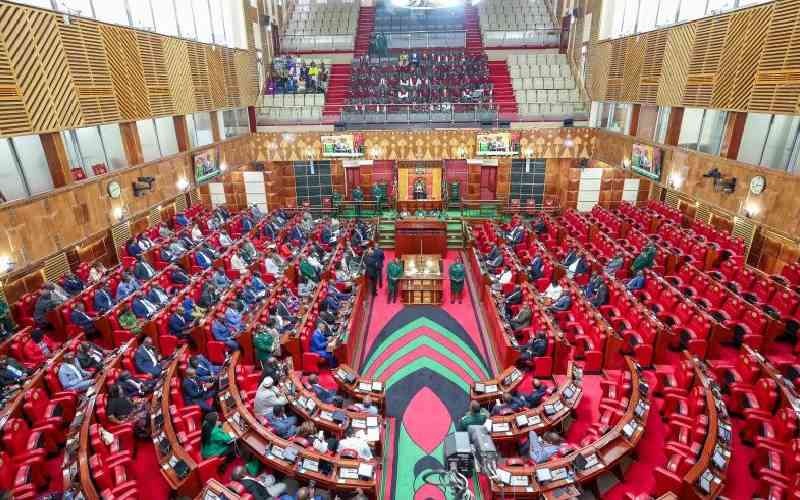
Parliament is in search of relevance in the making of foreign policy. This desire brought together MPs, irrespective of their political leaning - wantam/cousin or the tutam/kumi bila brake side - to learn how to be effective in foreign policy. Minority Deputy Whip in the National Assembly Mark Mwenje led the MPs in the search for a foreign policy role. Admitting that Parliament has minimal involvement in Kenya’s foreign policymaking, they appeared eager to learn from a few ‘facilitators’ led by former MP and ambassador Mutinda Mutiso. Other facilitators included lawyer Francis Khayundi and International Relations scholar Nicodemus Minde.
Mr Mutinda urged the MPs to develop diplomatic minds because they vet diplomats. While vetting those nominated for diplomatic positions, Mutinda stressed that MPs should examine a candidate’s ability to advance Kenya’s national interests through projection, promotion, and protection. In addition, he argued, that the MPs and the executive should develop good working relations as was the case during President Mwai Kibaki's time when "real consultation on any issue was a reality". Mr Kibaki achieved many things, he said, partly because he had a virtual open-door policy towards MPs irrespective of their party affiliation.
Many MPs, however, may not be aware of national interests and are therefore handicapped and cannot vet effectively. This is because the requirement for effective vetting assumes that MPs would have taken time to know what Kenya’s national interests are. That knowledge would empower them to become custodians of Kenya’s national interests that appear to be under threat from rapacious executives. Since many are hazy on what the national interests are, MPs probably need intensive induction courses on how to be good custodians of national interests. Effective vetting would save the country the embarrassment of people who have problems with common sense assuming critical decision making positions.
Besides showing interest in Parliament organising similar courses on foreign policy, the lawmakers tried to understand some of the paradoxes that bedevil Kenya. Why, they wondered, is Kenya not properly felt in Democratic Republic of Congo (DRC)? This, some concluded, was because the country has not been serious in addressing its vital interests, and DRC was one of those interests. A vast country, four times Kenya’s territorial size, with a 112 million people as potential market and with unlimited amount of natural resources which need reliable outlets to the outer world, the question that arose was why Kenya had failed to play its part. The MPs lamented that some of those picked for diplomatic positions were totally unfit for that office and could not therefore promote Kenya’s interests.
In their deliberations, the MPs thought of how they can use parliamentary leverage to force Kenya to rethink its approach to foreign policy. Since Kenya had goofed in DRC, they considered applying ‘soft power’ to attract the Congolese to Kenya through several actions. First, they could invite their Congolese counterparts to Nairobi to discuss mutual Kenya Congolese interests. Second, Kenya could help provide essential social services as education and health which would keep Kenyan professionals busy and win the goodwill of the Congolese. The MPs, it was clear, would also need a serious study of various continental and extra-continental forces that perpetuate instability in DRC. Only then can they design strategies for addressing those forces.
The MPs seeming unity in seeking relevance promises a bright future. They have the potential of becoming real custodians of Kenya’s national interests rather than being cheerleaders for the executive. When not joking about ‘cousins’, they appeared committed to helping Kenya to attain its lost diplomatic potential. Being possible custodians of Kenya’s national interests, it would be tragic if they forgot their bipartisan search for relevance in the formulation of Kenya’s foreign policy and in return get bogged down in the wantam and tutam temporary political hysteria.